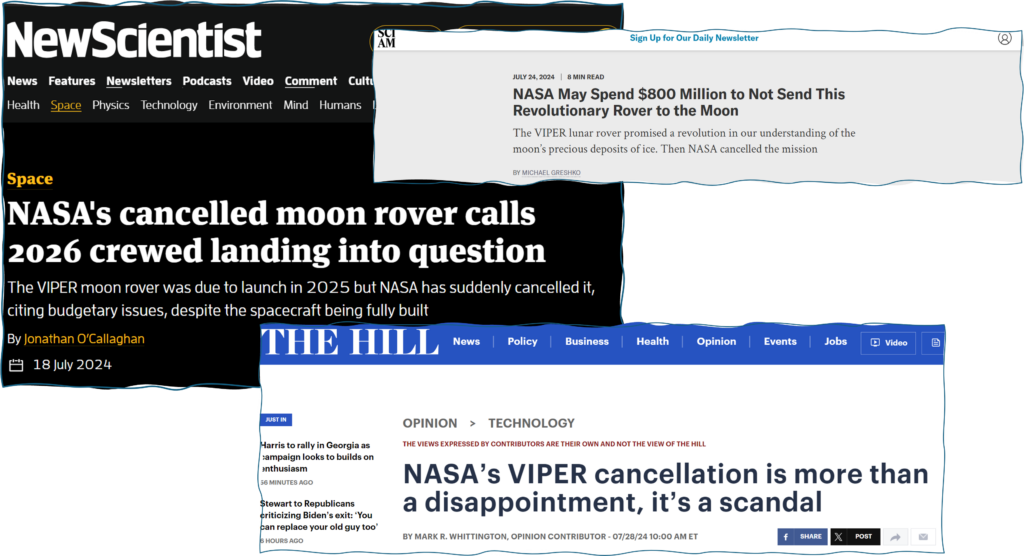NASA has cancelled its VIPER (Volatiles Investigating Polar Exploration Rover) project 14 months before the golf-cart sized rover, which has already been completed, was set to launch. The news, announced in a teleconference on 17 July, sent shockwaves around the space industry.
VIPER was on a landmark mission to spend 100 Earth days seeking out and mapping the locations of ice on the Moon. It was due to be launched aboard an Astrobotic Griffin lander as part of NASA’s Commercial Lunar Payload Services initiative (CLPS) in late 2025. Using its own lighting, VIPER was meant to delve into the shadowy and dark regions around the south pole of the Lunar surface in search of the crucial resource.
Instead, the agency has called time on the ambitious rover after an internal review and plans to dismantle it to reuse the parts for other missions. A sad end for a spacecraft with once lofty goals. The main reasons for cancelling the mission were the growing development costs, repeated delays to its launch (originally set for late 2023 and pushed out until late 2025) and the risks associated with continuing the project: increased cost “that threatens cancellation or disruption to other CLPS missions”, according to NASA.
VIPER was predicted to cost around US$250 million when NASA announced the project in October 2019. However, by 2021 the agency confirmed that it had already spent US$433.5 million. The latest estimate by NASA put the total figure at around US$610 million.
Still, the agency hopes to scrape back US$84 million in development costs by axing the programme.
The scathing reaction

The decision to literally take apart a spacecraft designed to explore ice on the Moon, to save just under 20 per cent of the total spent so far, has not gone down well with the science community. VIPER’s mission was regarded as critical to the oft lauded Lunar economy and the race to return humans to the Moon. Scientists expressed outrage that, given how far the project had come, it could all be wasted at this late stage.
The pushback prompted by NASA’s shock announcement led more than 2,000 champions of the project to sign a letter asking the US Congress to resuscitate the mission. In it, the signatories, convened by the Planetary Society and including space enthusiasts and engineers, make their views clear. Without VIPER, “the United States risks losing its leading position in lunar exploration,” it says.







